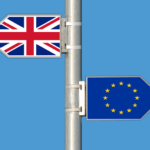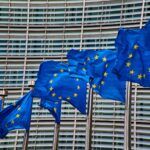Commission welcomes the publication of the strengthened Code of Practice on Disinformation.
The 34 signatories, such as platforms, tech companies and civil society followed the 2021 Commission Guidance and took into account the lessons learnt from the COVID19 crisis and Russia’s war of aggression in Ukraine. The reinforced Code builds on the first Code of Practice of 2018, which has been widely acknowledged as pioneering framework globally. The new Code sets out extensive and precise commitments by platforms and industry to fight disinformation and marks another important step for a more transparent, safe and trustworthy online environment.
Together with the recently agreed Digital Services Act and the upcoming legislation on transparency and targeting of political advertising, the strengthened Code of Practice is an essential part of the Commission’s toolbox for fighting the spread of disinformation in the EU.
The 34 signatories include major online platforms, notably Meta, Google, Twitter, TikTok, and Microsoft, as well as a variety of other players like smaller or specialised platforms, the online ad industry, ad-tech companies, fact-checkers, civil society or that offer specific expertise and solutions to fight disinformation.

Kremlin Hate Speech Incites War Crimes in Ukraine
|
The strengthened Code aims to address the shortcomings of the previous Code, with stronger and more granular commitments and measures, which build on the operational lessons learnt in the past years.
Concretely, the new Code contains commitments to:
- Broaden participation: the Code is not just for big platforms, but also involves a variety of diverse players with a role in mitigating the spread of disinformation, and more signatories are welcome to join;
- Cut financial incentives for spreading disinformation by ensuring that purveyors of disinformation do not benefit from advertising revenues;
- Cover new manipulative behaviours such as fake accounts, bots or malicious deep fakes spreading disinformation;
- Empower users with better tools to recognise, understand and flag disinformation;
- Expand fact-checking in all EU countries and all its languages, while making sure fact-checkers are fairly rewarded for their work;
- Ensure transparent political advertising by allowing users to easily recognise political ads thanks to better labelling and information on sponsors, spend and display period;
- Better support researchers by giving them better access to platforms’ data;
- Evaluate its own impact through a strong monitoring framework and regular reporting from platforms on how they’re implementing their commitments;
- Set up a Transparency Centre and Task Force for an easy and transparent overview of the implementation of the Code, keeping it future-proof and fit for purpose.

Press freedom 2022: how are EU countries rated?
|
Finally, the Code aims to become recognised as a Code of Conduct under the Digital Services Act to mitigate the risks stemming from disinformation for Very Large Online Platforms.
More information: European Commission – Press release







Leave a Reply